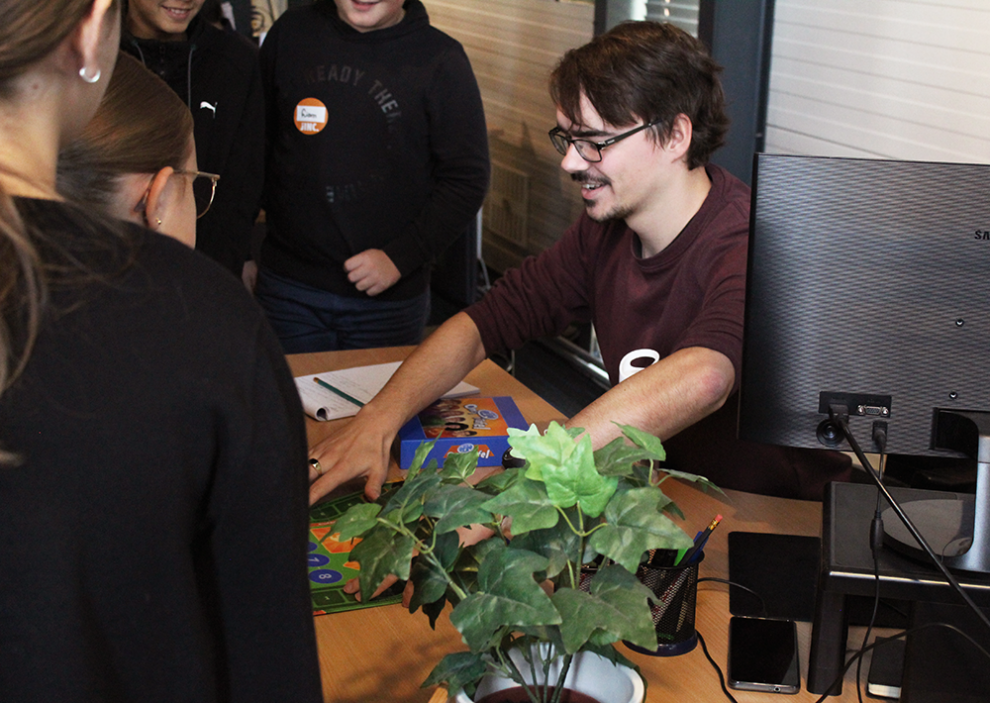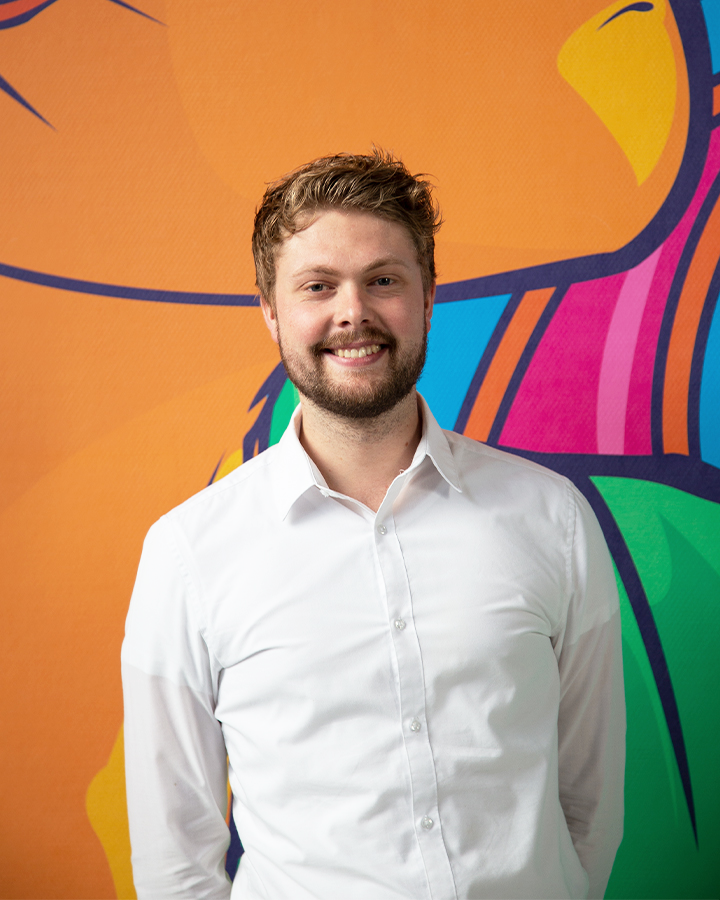Partnerships
Working on education and youth welfare Although our home base is firmly in the Frisian clay, we have built up a large network of international cooperation partners in recent years….

Over the past few years I have had the opportunity to participate in a number of Erasmus+ projects. For those unaware; projects under the Erasmus+ programme are aimed at solving key issues within the European Union, in the areas of education, youth and sports. These projects are undertaken by consortia of organizations across Europe collaborating to positively change this issue.
While the contents of these projects are interesting by themselves, I would like to share some thoughts about the international character of the programme. My aim is to provide you with an understanding of the subtle ‘side’ benefits of participating in one of these projects, especially for people that are interested in joining but are still wondering if it’s the right fit for their organization.
Part of the Erasmus+ projects are the TNPM’s: Transnational Project Meetings. It means flying out to the country of one of the partnered organizations and having a meeting with stakeholders. These take place about every half year during the course of a project. Friends and family often react with a mix of enthusiasm and slight mockery when I announce I will be traveling again. “Ga je nou alweer?” (‘are you going again?’) is a phrase that is often thrown around.
While I feel lucky being able to make these journeys, the reality is that these travels are not quite as glamorous as your friends might think. Most of your time is spent on traveling to your location, sitting in long meetings and getting some food, before you are headed back to the airport. The time for historical or cultural observation through visiting museums, art galleries or old town districts is often limited both by time and spare energy. Still, I have learned so much about Europe and its people on my travels. How come?
Just recently, I got to fly out to Riga to meet with our partners in Latvia. Joining us there were partners from Cyprus, Greece, North Macedonia, Denmark and, of course, our Latvian hosts. Before this project, I have had the chance to work on different projects with partners from Spain, Denmark, Italy, Ireland, Romania, Estonia.
Most of the visit is spent in meetings discussing the project, but there is always some time cut out for the ‘social dinner’. Calling a dinner ‘social’ still seems redundant to me, but I presume the implication to be that this time is explicitly meant to get to know each other and spent some time not talking about the project.
The mix of people present at these meetings is always diverse. Young and old, experienced or fresh on the job, educators or managers, and, of course, different nationalities and cultures. It can be tough to find a common topic to talk about, which often means there is a certain progression of topics that I observe at most ‘social dinners’.
First, the project is discussed. Afterwards, any other projects that people might be involved in; when are you traveling next? Any interesting proposals you’re working on? (the observant reader understands that this subject is an important reason for attending these meetings – finding the next project you will be working in). There comes a point where you run out of things to talk about regarding work, and this is when the good stuff starts.
What is there in life beside work? The common denominators seem to be: family, past time, and politics. Being in project meetings has taught me about challenges in education in different countries, but sharing a beverage with partners has taught me about what it means to be a person in different countries. What are the challenges that we share? Where are our differences? What is the cause for these differences?
Some random things I learned during my Latvia travel: How does a Greek wedding work? What is the current policy on autism support in Latvia? How many vacation days does a North Macedonian get? What is considered a ‘long travel’ for a Cypriot? Why are Greek museums lacking in accessibility? What is a popular drinking game in the Danish country side? What problems with corruption is Cyprus facing, and how does it affect the average population? Information shared over dinner, and always followed by the question: “what is it like for you guys?”
These insights seem random, but they are ultimately invaluable. Not only as a human being, or a European citizen, but also as a person working on an international project. It provides a perspective on why problems occur, a perspective you don’t get during ‘formal’ meetings. It is at the dinner table that you often find out what you really should be solving, or inspiration for a new project to tackle an issue that is outside of your current scope. At the dinner table it is that the goal of the Erasmus+ programme is achieved; forming relations between European organizations and people across border.
Talking about our human experiences rather than work experiences, ironically, builds stronger working relations and often leads to lasting partnerships. It is no exaggeration when I say that many partners will greet each other as old friends when they meet again in some new country. This is especially surprising considering the frequent online meetings that occur during the project. Still, time past appears to be measured against the previous glass you raised together, not the last time you discussed Gantt charts on Zoom.
The value gained from these meetings exceeds the context of the ‘TNPM’ or even the project itself. I share my experiences within my own organization (at our daily ‘social’ lunch), leading to benefits such; increased cultural awareness, partnership building, new project identification. I share these experiences with my Dutch clients; drawing comparisons between problems they are facing and similar organizations abroad, building bridges between them outside of the Erasmus+ context. I even share these experiences with my friends, who become curious and enthusiastic about countries they knew nothing about; leading them to visit a different place than southern France or the Spanish coast.
This value can be ‘invisible’ from a project viewpoint. They might not be mentioned in any quality reviews (but more commonly they are, because the Erasmus+ coordinators understand this value well!). These outcomes might not reach the local newspaper. But after having spent about 4 years involved in these projects I now understand and appreciate how much Erasmus+ has allowed me to broaden my horizon. These values also match with 8D Games, which means that we are still looking to build more partnerships across Europe and involve ourselves actively in solving these tough but engaging challenges.
To paint a fair picture, I should mention there is a cost to this. First, there is the human cost of getting 10-15 people to a distant location for a meeting. During this time, productivity either goes down dramatically, or people work overtime to keep up with the day-to-day. We found that with good planning and realistic expectations, this cost can be mitigated to a large extent.
Secondly, there is the environmental impact. From my experience, the current norm is flying to your meeting destination. In practice, that could mean you are traveling by plane for a total of 6-8 hours (assuming the flight connections are good), times the amount of people attending the meeting, for a meeting that takes two days. I hope that from reading you understand that doing these projects remote loses out on some of the most important value. Still, I hope to see two changes in the future to this norm. Fewer, but longer meetings during the projects. That means more time for the good bits! Secondly, financial incentive for alternate travel methods such as trains, such as lowering financial compensation for air travel.
Hopefully I have achieved my goal in showing the secondary benefit to participating in Erasmus+ projects. I have left the value of doing the actual project out of the equation, as this seems more evident to me. Ultimately, I am positive about the impact of these projects and would invite those hesitating to at least try this out once for their own organization. I am looking forward to meeting you at the next ‘social’ dinner.
If you would like to learn more about Erasmus+ projects, please reach out to me at bas@8d-games.nl, or to our European coordinator Sven (sven@8d-games.nl). 8D Games is always looking for eager partners that want to broaden their horizons and tackle issues at an international level.
